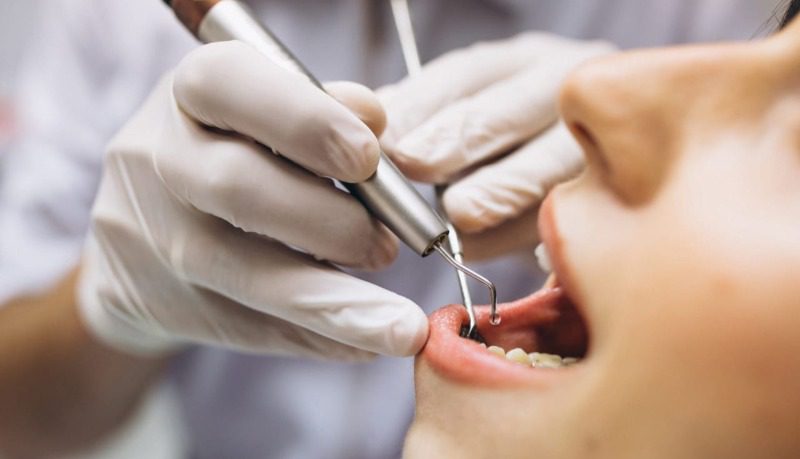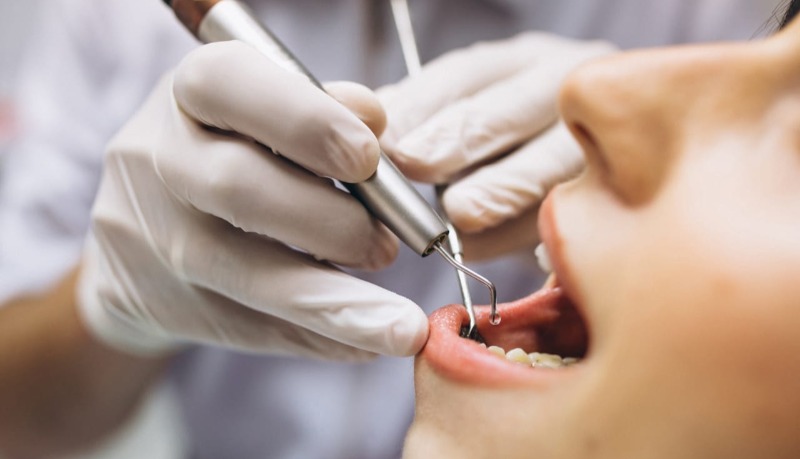 Tartar is formed by the accumulation of bacterial plaque on the surface of the teeth. (Photo: Publicity/Freepik)
Tartar is formed by the accumulation of bacterial plaque on the surface of the teeth. (Photo: Publicity/Freepik)
Tartar on the teeth, also called erosion, begins when small bacterial plaques begin to form on the teeth, due to poor hygiene after eating. If not treated beforehand, it can develop into periodontitis, which is the most advanced stage of the problem. In this case, tissue loss occurs in the area around the teeth, which can lead to tooth loss.
Tartar is formed by the accumulation of bacterial plaque on the surface of the teeth. When not removed, over time it hardens and gets stuck in place, forming a yellow or white “crust”. And when this happens, there is no longer a way to remove it with a simple brush, and it is recommended to seek a specialist. Tartar feeds on microorganisms in the mouth, and can multiply all over the smile. This results in oral health problems such as: gingivitis, clogged arteries, gingivitis, periodontal disease and tooth loss.
Hapvida NDI group dentist, Rafaela Magda, stresses the importance of good dental hygiene. “This oral cavity cleaning is essential to prevent both tartar and any other type of disease present in the mouth. There are places where the toothbrush cannot reach and are difficult to clean, in which case it is important to rely on other resources such as dental floss and mouthwash.”
The specialist also warns of dental crowding, a condition in which there is not enough space in the bite to naturally fit the dental arch. “It can clump together, overlap and twist, sometimes being pushed forward or backward, where there is a greater accumulation of dirt. It is necessary in these cases to carry out corrective dental treatment, in addition to the basic concepts of hygiene and brushing. Thus, it is not only possible to prevent tartar, but Also tooth decay and many other oral diseases,” explains Raffaella.
This problem goes beyond the aesthetic problem, and although it is avoided, it is still very common among the inhabitants of Brazil. “It is something that, if left untreated, is detrimental not only to the beauty of the smile, but also to the health of the mouth. Doing the basics, namely, brushing the teeth and using other allies of this hygiene, every day and always after meals, is still the best way to avoid this kind of disorder And the most serious consequences,” the dentist notes.

“Wannabe internet buff. Future teen idol. Hardcore zombie guru. Gamer. Avid creator. Entrepreneur. Bacon ninja.”

